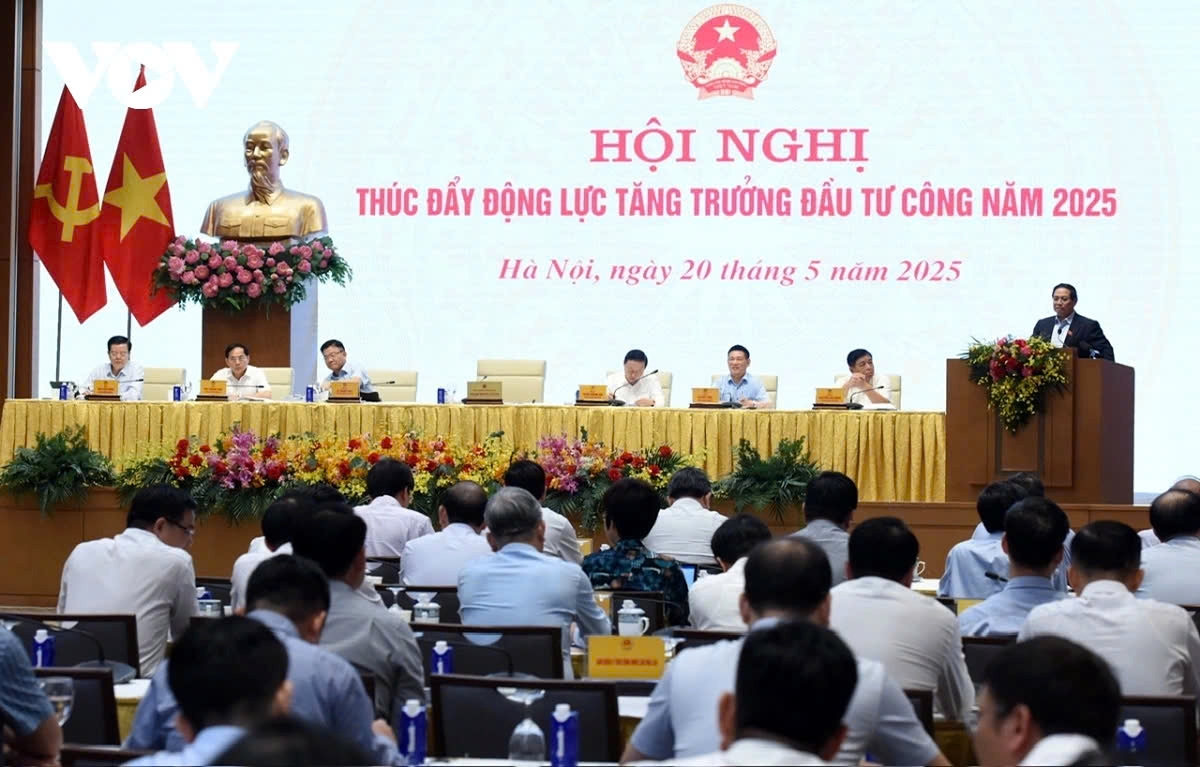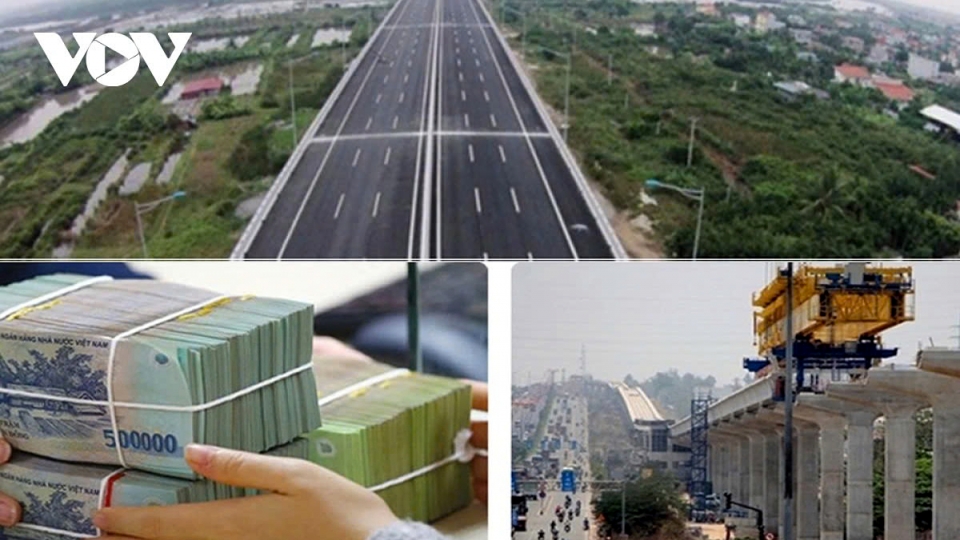Prime Minister requests addressing bottlenecks in public investment disbursement
VOV.VN - Prime Minister Pham Minh Chinh, while chairing a Government meeting on public investment in Hanoi on May 20, asked ministries, sectors, and localities to identify bottlenecks and take responsibility for underperformance, in an attempt to accelerate public investment disbursement.

He stressed that public investment plays a leading role in unlocking resources for development as Vietnam focuses on revitalising its three traditional growth drivers of investment, consumption, and exports, alongside promoting new growth drivers. However, he said, public investment execution has not met expectations.
He cited a Ministry of Finance report, saying more than VND128.5 trillion in public investment was disbursed in the first four months of 2025, equivalent to 15.56% of the plan, lower than the 16.64% rate seen in the same period last year. Notably, 37 out of 47 ministries/agencies and 27 out of 63 localities are below the national average.
The PM requested that the Ministry of Finance compile a list of underperforming units to evaluate personnel performance.
Ministries and agencies that perform well will be rewarded, while underperformers must face accountability, he said.
He asked the designed agencies to identify and address the root causes of delays, with clear responsibilities and timelines assigned. He reminded them to implement regular monitoring tools and metrics to track progress and push forward disbursement.
Institutional reforms are needed, particularly concerning budget laws and bidding regulations, to remove systemic barriers, he stressed.
The Government leader pointed out that private businesses often complete projects more efficiently than state owned enterprises. Therefore, he said, all concerned parties must act decisively to ensure effective use of allocated funds.
He called for greater decentralisation with clear delegation of authority, responsibility, and resources to local administrations. Local leaders must be empowered to decide, act, and be held accountable, while ministries focus on state management roles.
State-owned enterprises should also be more proactive in promoting investment and contributing to national development, he concluded.




